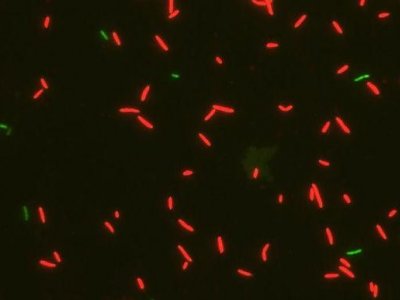Current Research
Antibiotics and bacteriocin persistence in Pseudomonas syringae.
Publications
Kandel PP, Naumova M, Fautt C, Patel RR, Triplett LR, Hockett KL. 2022. Genome mining shows ubiquitous presence and extensive diversity of type II toxin-antitoxin systems in Pseudomonas syringae. Frontiers in Microbiology 12:815911.
Patel RK, Kandel PP, Hockett KL, Traverso E, Triplett LR. 2021. Pseudomonas syringae pv. phaseolicola uses distinct modes of stationary-phase persistence to survive bacteriocin and streptomycin treatments. mBio 12: e00161-21.
Castillo AI, Bojanini I, Chen H, Kandel PP, De La Fuente L, Almeida, RPP. 2021. Allopatric plant pathogen population divergence following disease emergence. Applied and Environmental Microbiology 87: e02095-20.
Kandel PP, Baltrus DA, Hockett KL. 2020. Pseudomonas can survive tailocin killing via persistence-like and heterogenous resistance mechanisms. Journal of Bacteriology 202: e00142-20.
Martins SJ, Trexler RV, Vieira FR, Pecchia JA, Kandel PP, Hockett KL, Bell TH, Bull, CT. 2019. Comparing approaches for capturing bacterial assemblages associated with symptomatic (bacterial blotch) and asymptomatic mushroom (Agaricus bisporus) caps. Phytobiomes Journal 4: 90-99.
Potnis N*, Kandel PP*, Merfa MV*, Retchless AC, Parker JK, Stenger DC, Almeida RPP, Bergsma-Vlami M, Westenberg M, Cobine PA, De La Fuente L. 2019. Patterns of inter- and intra-subspecific homologous recombination inform eco-evolutionary dynamics of Xylella fastidiosa. ISME Journal 13: 2319-2333. *Equal contribution
Kandel PP, Chen H, De La Fuente L. 2018. A short protocol for gene knockout and complementation in Xylella fastidiosa shows that one of the type IV pilin paralogs (PD1926) is needed for twitching while another (PD1924) affects pili number and location. Applied and Environmental Microbiology 84: e01167-18.
Chen H, Kandel PP, Cruz LF, Cobine PA, De La Fuente L. 2017. The major outer membrane protein MopB is required for twitching movement and affects biofilm formation and virulence in two Xylella fastidiosa strains. Molecular Plant-Microbe Interactions 30: 896-905.
Kandel PP, Almeida RP, Cobine PA, De La Fuente L. 2017. Natural competence rates are variable among Xylella fastidiosa strains and homologous recombination occurs in vitro between subspecies fastidiosa and multiplex. Molecular Plant Microbe Interactions. 30:589-600
Kandel PP, Lopez SM, Almeida RP, De La Fuente L. 2016. Natural competence of Xylella fastidiosa occurs at a high frequency inside microfluidic chambers mimicking the bacterium's natural habitats. Applied and Environmental Microbiology 82:5269 –5277
Kandel PP, Pasternak Z, van Rijn J, Nahum O, Jurkevitch E. 2014. Abundance, diversity and seasonal dynamics of predatory bacteria in aquaculture zero discharge systems. FEMS Microbiology Ecology 89(1):149-61
Awards and Fellowships
2016 Student Travel Award, American Phytopathological Society
2016 Outstanding Ph.D. Student of Department of Plant Pathology, Auburn University
2012 Travel Award for First Pears Foundation Alumni Workshop at Hebrew University of Jerusalem, Israel
2011 Full scholarship for summer course at Singapore Centre for Environmental Life Science Engineering (SCELSE), Nanyang Technological University, Singapore
2010 Scholarship for M.S. thesis stream by Pears Foundation, UK
2009 Johny Fraser Memorial Scholarship for M.S. Studies in Nutritional Sciences at Hebrew University of Jerusalem, Israel
2004-2008 Tribhuvan University Fellowship for undergraduate studies


